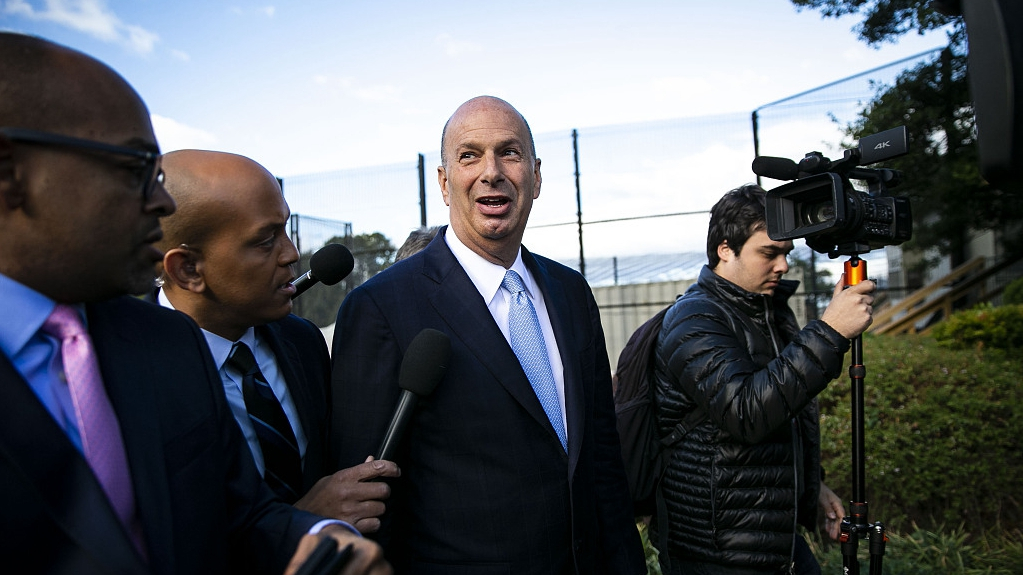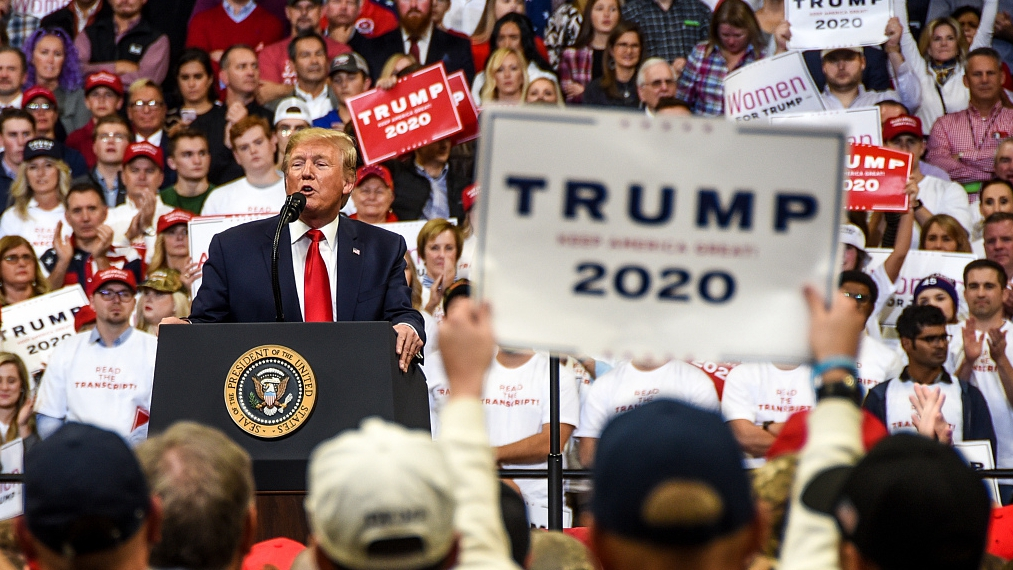U.S. diplomat Gordon Sondland told a Ukrainian official his country would likely not get nearly 400 million U.S. dollars in security aid unless it pursued investigations demanded by President Donald Trump, revising earlier testimony to the congressional impeachment inquiry.
What did Sondland say?
Sondland, the U.S. ambassador to the European Union, offered new details to lawmakers on Monday after his memory was "refreshed." He initially testified to the Democratic-led congressional inquiry in October.
The details appeared to bolster the initial whistleblower complaint that led to the investigation by three U.S. House of Representatives committees. The testimony also corroborated other witnesses who said Trump sought to pressure the Ukrainians into conducting investigations that appeared to be aimed at helping his re-election campaign.

Gordon Sondland, U.S. ambassador to the European Union, arrives for closed-door testimony before House committees on Capitol Hill in Washington, D.C., October 17, 2019. /VCG Photo
Gordon Sondland, U.S. ambassador to the European Union, arrives for closed-door testimony before House committees on Capitol Hill in Washington, D.C., October 17, 2019. /VCG Photo
In his new statement, Sondland said that by the beginning of September "in the absence of any credible explanation," he concluded that the withheld aid was linked to Trump's demand that Ukraine publicly acknowledge an investigation. Sondland has said he did not realize early on that the investigation was meant to target former vice-president Joe Biden and his son Hunter Biden.
"Resumption of U.S. aid would likely not occur until Ukraine provided the public anti-corruption statement that we had been discussing for many weeks," Sondland said he told a Ukrainian presidential adviser.
How did the White House respond?
The White House said the Sondland transcript undermined the impeachment inquiry.
White House spokeswoman Stephanie Grisham pointed to Sondland's inability to say who ordered the aid to Ukraine be withheld and that he admitted he "presumed" there was a link between the demand for a statement from the Ukrainians and releasing the aid.

President Donald Trump addresses a rally in Lexington, Kentucky, November 4, 2019. /VCG Photo
President Donald Trump addresses a rally in Lexington, Kentucky, November 4, 2019. /VCG Photo
"No amount of salacious media-biased headlines, which are clearly designed to influence the narrative, change the fact that the president has done nothing wrong," Grisham said in a statement.
Trump has denied wrongdoing and accused Democrats of unfairly targeting him in hope of reversing his surprise victory in the 2016 presidential election.
What's the background?
The impeachment inquiry is focused on a July 25 phone call in which Trump asked Ukrainian President Volodymyr Zelenskiy to open an investigation into the Bidens.
Joe Biden is a leading contender for the Democratic nomination to run against Trump in the November 2020 election. Hunter Biden was on the board of Ukrainian energy company Burisma that had been investigated for corruption.
Much of the early parts of the investigation by the committees, which include Democratic and Republican lawmakers, were conducted behind closed doors, but now the inquiry is moving into a public phase.
Sondland submitted the supplemental testimony on Monday after testimony by other officials, including Bill Taylor, the top U.S. diplomat at the embassy in Kiev.
Congressional Democrats also released testimony from Kurt Volker, Trump's former special representative for Ukraine negotiations. Volker detailed what he described as the role of Trump's personal lawyer, Rudy Giuliani, as a conduit between Washington and Kiev.
(With input from Reuters)